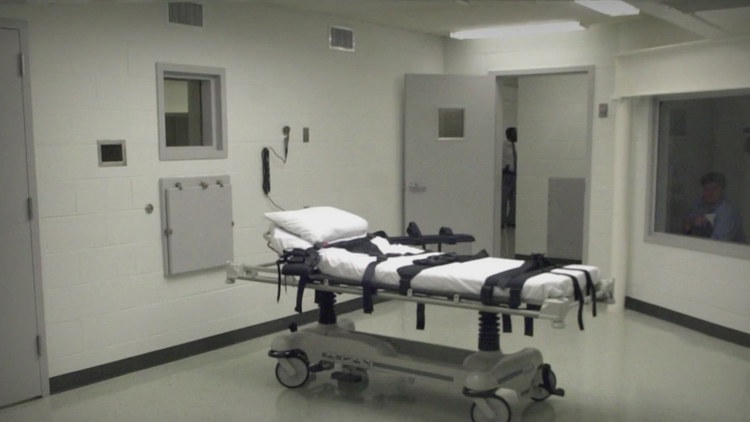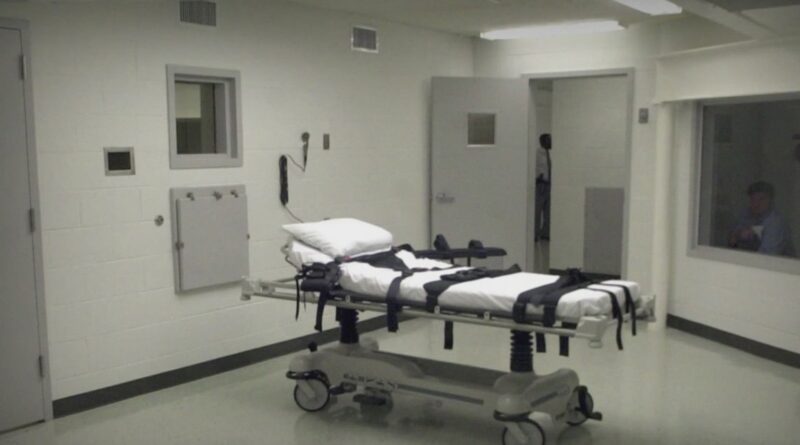Proposed bill could change how executions are carried out across Arkansas

Arkansas is one among several other states that are looking to replace their way of carrying out capital punishment by using a new method involving nitrogen gas.
LITTLE ROCK, Ark. — In 2024, the nation saw a new method of execution that took place in Alabama.
After having been convicted of a murder in 1988, Kenny Smith was put to death by a never-before-used method— nitrogen hypoxia.
Fast forward to the present day, for states like Arkansas that can no longer access lethal injection drugs, using a readily available gas to essentially strangle a person in their sleep has its appeal.
HB1489 was first introduced on February 14 and looks to add nitrogen hypoxia to Arkansas state law alongside lethal injections for state executions.
However, one outspoken critic of this bill shared how executions might not be as quick and easy as advocates say they are.
“Never before in the history of mankind have we had an execution method that endangers everyone else in the vicinity and the people who are carrying out the execution,” said Reverend Doctor Jeff Hooks, a spiritual advisor for death row inmates.
The execution happens when the nitrogen gas kills by essentially strangling a person by taking away their oxygen. In theory and so far in practice, advocates say the method causes the person to pass out and thus not realize they are dying.
However, Hooks explained how that wasn’t the case when he witnessed the execution of Smith in 2024. He also added that the method looked more like suffocation and torture compared to what he had seen with lethal injections.
“We’re talking about torture. People can be for the death penalty and still be very much against this method. I also think that we have to begin to consider and to think what is this method doing to the victim’s family, corrections officers, and other witnesses who are absolutely horrified by what they see,” he described.
There are currently 25 inmates on Arkansas’s death row and all have been convicted of capital murder.
Hooks also explained how the execution methods can occur without causing other complications.
“I think that whoever votes for this bill will be voting to compound the suffering of victims’ families who watch these executions. Whoever votes for this bill will be endangering the lives of corrections officers who will be sitting in that chamber,” he expressed. “They will be endangering the lives of clergy who are in that chamber. This method doesn’t have to happen. There are other ways of pursuing executions.”
There is an argument that using this gas would violate the inmate’s Eighth Amendment constitutional right prohibiting cruel and unusual punishment.
Meanwhile, Hooks thinks that those who haven’t seen this type of execution, should not be making decisions on it before they have an opportunity to see it for themselves.
“These legislators are never going to have to be imperiled by nitrogen gas. These legislators are never going to have to witness a nitrogen execution. They never going to have to perform a nitrogen execution. And so it feels very cowardly to promote something that you’re not going to have to get your hands dirty,” he said.
Hooks is someone who says he opposes the death penalty, but he also advocates that there are more humane ways that states can conduct executions.
“The state of Arkansas is better than this. The state of Arkansas is better than just torturing someone. They’re better than suffocation. This is an evil method, and the consequences will only be more evil,” he described.
If Arkansas legislature were to pass this bill then Arkansas would join four other states in allowing this type of execution.
The bill was on the agenda for the House Judiciary Committee on February 20 but has since been rescheduled to next Thursday, February 27, 2025.

